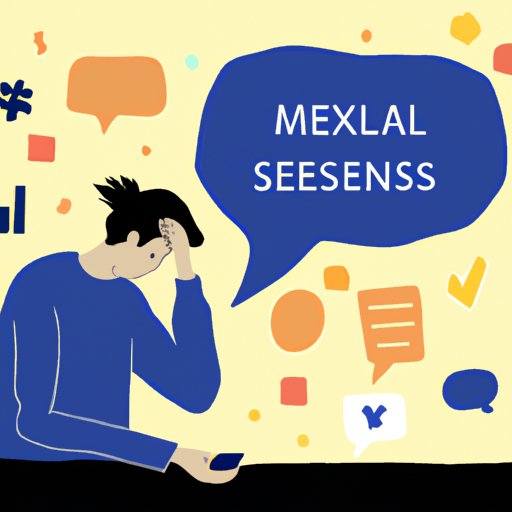Introduction
Mental health is an important aspect of overall wellbeing that can sometimes be overlooked. It’s important to take the time to address any mental health issues you may be experiencing, including taking time off work if needed. Knowing what to say when calling in sick for mental health can be difficult, but with the right preparation and understanding of your rights, you can make the most of your mental health day.

How to Prepare for a Mental Health Day: Tips and Strategies
Taking a mental health day can be a daunting prospect, but with the right preparation and support, you can make the most of the time off. Here are a few tips to help you get ready for your mental health day.
Make Sure You’ve Taken Care of Any Urgent Tasks
Before taking a mental health day, it’s important to make sure that any urgent tasks are taken care of. This will help ensure that your coworkers are not left in the lurch while you take some time to focus on yourself. If possible, try to complete any urgent tasks or delegate them to someone else before you take your mental health day.
Consider Talking to a Trusted Friend or Family Member
It can be helpful to talk to a trusted friend or family member about your decision to take a mental health day. Having the support of those closest to you can provide the encouragement and reassurance you need to take time for yourself. Plus, talking about your feelings can help you gain clarity and insight into what you need to do to take care of yourself.
Make a Plan for What You Will Do During Your Mental Health Day
Making a plan for your mental health day can help you make the most of the time off. Think of activities that bring you joy and relaxation, such as going for a walk, reading a book, or spending time with your pet. Scheduling enough time for rest and relaxation can help you recharge and come back feeling refreshed and ready to take on the world.
Taking Time Off Work for Mental Health: What to Say When Calling In Sick
When calling in sick for mental health, it’s important to be honest about the reason for taking time off. Explain that it’s necessary for your wellbeing and that you need to take time to focus on yourself. Let your employer know that you understand their need to know why you are taking the time off and offer to provide more information if needed. Remember, you don’t have to go into details, but it’s important to be honest about why you need the time off.

Understanding Your Rights: What Employers Need to Know About Mental Health Days
Employers should be aware of federal and state laws regarding mental health days. The Americans with Disabilities Act (ADA) requires employers to provide reasonable accommodations for employees with disabilities, which includes mental health issues. Employers should also have policies in place to support employees who need to take time off for mental health reasons. There are also resources available to employers to help support employees with mental health issues.
Managing Stress and Anxiety: Best Practices for Calling in Sick for Mental Health
Managing stress and anxiety can be difficult, especially when it comes to taking time off work for mental health. It’s important to set boundaries with employers and coworkers and practice relaxation techniques, such as deep breathing and yoga. Developing a self-care action plan can also help you manage stress and anxiety by giving you a plan of action for when you need to take time off for mental health.

Making the Most of a Mental Health Day: Creating an Action Plan for Self Care
Creating an action plan for self-care is essential for making the most of your mental health day. Identify activities that bring you joy and relaxation and make sure you have enough time scheduled for rest and relaxation. Finally, make a commitment to yourself to continue practicing self-care after your mental health day.
Conclusion
Taking time off work for mental health is an important part of taking care of yourself. Being prepared and knowing what to say when calling in sick can help make the process easier. Understanding your rights and developing a self-care action plan can also help you make the most of your mental health day. It’s important to remember that mental health is just as important as physical health, so it’s important to prioritize your wellbeing.
(Note: Is this article not meeting your expectations? Do you have knowledge or insights to share? Unlock new opportunities and expand your reach by joining our authors team. Click Registration to join us and share your expertise with our readers.)
